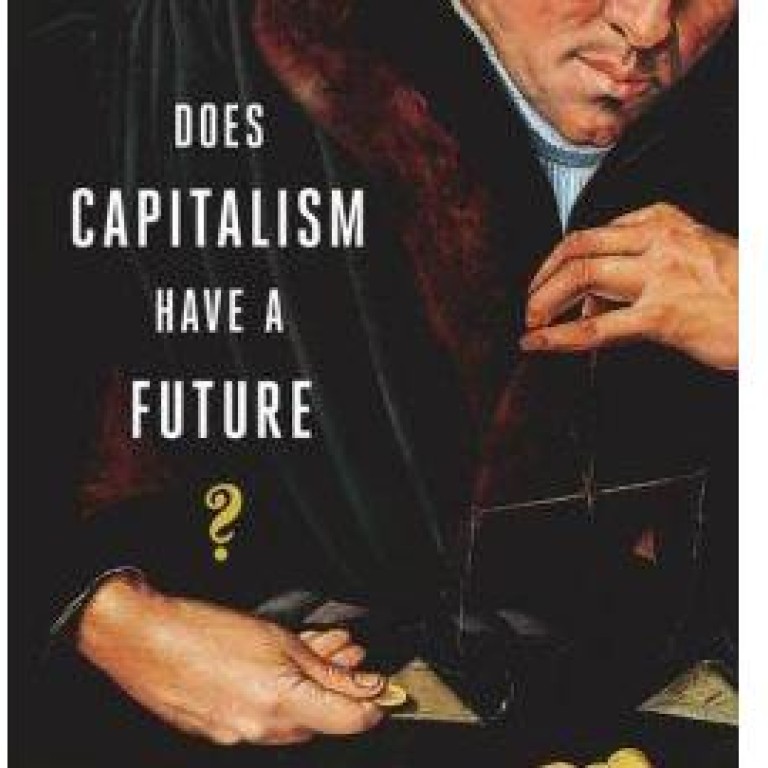
Book review: Does Capitalism Have a Future? by Immanuel Wallerstein, et al
First, HSBC chief global economist Stephen King predicted the end of Western affluence in When the Money Runs Out. Now, channelling Great Recession anxiety, five social scientists address whether capitalism is over altogether.
by various authors
Oxford University Press
3.5 stars
First, HSBC chief global economist Stephen King predicted the end of Western affluence in . Now, channelling Great Recession anxiety, five social scientists address whether capitalism is over altogether.
"Capitalism's existence as a system for 500 years does not prove it will last forever," the introduction to says. The assumption that it could supposedly stems from two factors - a lack of alternatives and the influence of the 19th-century creed that man is evolving towards a higher, harmonious, liberal capitalism.
In fact, the authors say, all epic systems - from the Roman empire to the Qing dynasty and the Soviet bloc - flopped eventually. So capitalism might well do the same. At best, it will trundle on, according to American sociologist Craig Calhoun and Soviet Union expert Georgi Derluguian, who asks: "Why cannot capitalism continue as a low-growth global system, which it was for much of its history? The 20th century - more precisely, the period 1945 to 1970 in the West and the end of the 20th century in the East - would then be seen as exceptional.
"This low-growth scenario would also reduce the role of speculation and downgrade the power of finance capital, with repeats of our present Great Recession (which are at present quite likely) becoming less likely.
"Of course, as labour conditions improve throughout the world, that is very good news. Then all of humanity might live in an almost steady-state economy, like the Japanese have already done for the last twenty years. The future of capitalism might not be tumultuous, but boring," Derluguian writes, edging as close as the book goes to humour.
Ecologist Michael Mann also reckons that capitalism could survive, especially if it is guided by pragmatic liberal-labour politics. Still, he has grave doubts. He highlights the threat posed by three crushing forces: plague outbreaks, nuclear warfare and climate change.
Mann, who cites one of the best-known figures in sociological theory, Max Weber, says we should be especially worried because we are flaky. "Human beings are not rational calculating machines. Sometimes they face complex problems to which there is no obvious solution. Sometimes they are driven not by instrumental rationality but by what Weber called value rationality, sacrificing personal calculative interest to an overall ideology. Sometimes they are driven by strong emotions, overpowering reason. So human actions are often unpredictable," he writes.
In the 20th century, Mann adds, humans often took decisions that now look irrational - entering two devastating world wars and seeking a utopian total transformation of society. The 21st century may well be equally erratic, he writes.
Despite the heft of the five authors, this ambitious 224-page collection feels rambling, even turgid - especially at the conclusion. Some paragraphs are so stodgy they verge on unreadable. Another niggle is that Derluguian goes in hard on Soviet statesman Mikhail Gorbachev, described in the book as "mumbling" and "outpaced".
Still, the thrust of the collection - that capitalism could be doomed - is gripping. Techno-dystopian Randall Collins, who takes that view, blames the obliteration of middle-class work through computerisation.
"New jobs are created, but they do not match the number of jobs eliminated, nor replace lost income," Collins writes, adding that as artificial intelligence advances, the toll on employment will escalate.
Immanuel Wallerstein, who has held visiting professor posts at the Chinese University of Hong Kong, takes the deterministic view that a deathblow will be dealt by a monster cyclic slump. Collins and Wallerstein might both be right because they have "form". According to Derluguian, they are on record as correctly predicting the passing of communism in the USSR.
